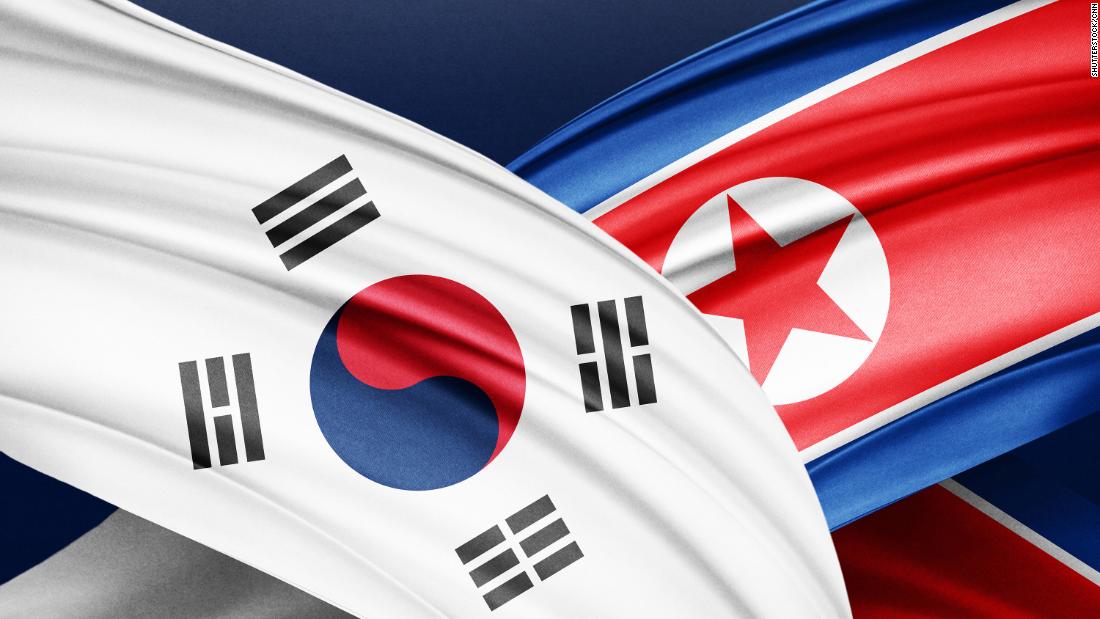
North Korean soldiers shot and killed a South Korean fisheries department employee in the waters south of the North Korean-controlled Yeonpyeong Islands on September 22. In a letter to President Moon Jae-in, Kim apologized for this "misfortune" and said the incident occurred after the man did not comply with a soldier's demands to identify himself and subsequent warning shots.
South Korea's Ministry of National Defense first announced the shooting and gave a timeline of events, but most specific details were reported in the press thanks to information lawmakers leaked to journalists from intelligence briefings given by military and security officials. This is fairly routine, but the amount of detail the press was given -- essentially a play-by-play of the entire incident -- may have exposed just how that intelligence was gathered.
In one example, People Power's Joo Ho-young, a leading opposition lawmaker, told a radio broadcaster that details about the case he shared had been "verified through special intelligence" and were based not on "what the defense ministry judged for itself, but what it has heard accurately" through surveillance.
Military officials have since expressed frustration at how much lawmakers gave away on this case, fearing it may prompt Pyongyang to change codes or other communication methods that Seoul's intelligence services had previously succeeded in compromising.
"It seems inappropriate for the military's sensitive intelligence to be arbitrarily processed or recklessly disclosed," Defense Ministry's acting spokesman, Moon Hong-sik, said during a press conference Monday. "Such action not only cause a lot of obstacles to our military operations, but they are not conducive to national security at all."
Kim Byung-joo, a ruling party lawmaker and retired four star general, told CNN that intelligence collection methods "have to be safeguarded."
"Most of the special intelligence we have is from the (Korea-United States) joint intelligence gathering, and handling this intel requires mutual trust," he added. "When there was a closed-door briefing by the Defense Ministry to (lawmakers), I stressed the importance of not leaking the information."
Kim said that revealing any data obtained from special intelligence risks North Korea changing its methods to avoid surveillance.
Yeo Suk-joo, South Korea's former deputy minister for national defense policy, pointed to an incident in 2008, when former North Korean leader Kim Jong Il had reportedly suffered a stroke. Details about Kim's condition, including the fact that he was able to brush his teeth, and could stand up with someone supporting him, were reported in the South Korean media, exposing how close to Kim Seoul's intelligence had penetrated.
"This caused a huge hole in our human information network for North Korea that we had built up until that time," Yeo said. "I hope this will be an opportunity to look back on the situation."
He warned that an upcoming government audit will likely result in lawmakers learning more information, and said "we really need to be very careful about such action that could inflict great damage on the North Korean intelligence network in this way."
Lawmakers who receive intelligence briefings are cleared to do so, Yeo said, "but this doesn't mean they've been granted any right or authority to pass on the information."
"I would like to emphasize that there is a clear obligation to protect such secrets," he added.
Kim, the ruling party lawmaker, accused opposition lawmakers of trying to politicize national security issues to damage President Moon, who has faced intense criticism from right-wing lawmakers for his efforts at rapprochement with North Korea.
While that policy resulted in a historic meeting between Moon and Kim in early 2018, followed by a summit between Kim and US President Donald Trump, criticism has grown after efforts at peace-building largely failed to deliver any mayor concessions from the North.
Pyongyang has taken an increasingly aggressive tone towards its southern neighbor this year, and in June the country cut off communication with Seoul, before blowing up a joint liaison office in Kaesong, a city on the northern side of the border.
The two leaders have exchanged letters in recent months, however, which Seoul said included a "message of hope for restoration of inter-Korean relations" as both countries fight the coronavirus pandemic.
In his letter apologizing for the shooting of the South Korean government worker, Kim said he was "very sorry that instead of giving aid to our compatriots in the South who are struggling with the Covid epidemic, we have given President Moon and our compatriots in the South a great disappointment."
"may" - Google News
October 05, 2020 at 12:41PM
https://ift.tt/3lbzPV6
Reports about North Korea shooting a South Korean official may have exposed intelligence gathering techniques - CNN
"may" - Google News
https://ift.tt/3foH8qu
https://ift.tt/2zNW3tO
Bagikan Berita Ini















0 Response to "Reports about North Korea shooting a South Korean official may have exposed intelligence gathering techniques - CNN"
Post a Comment